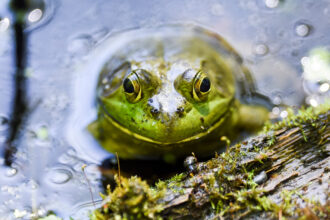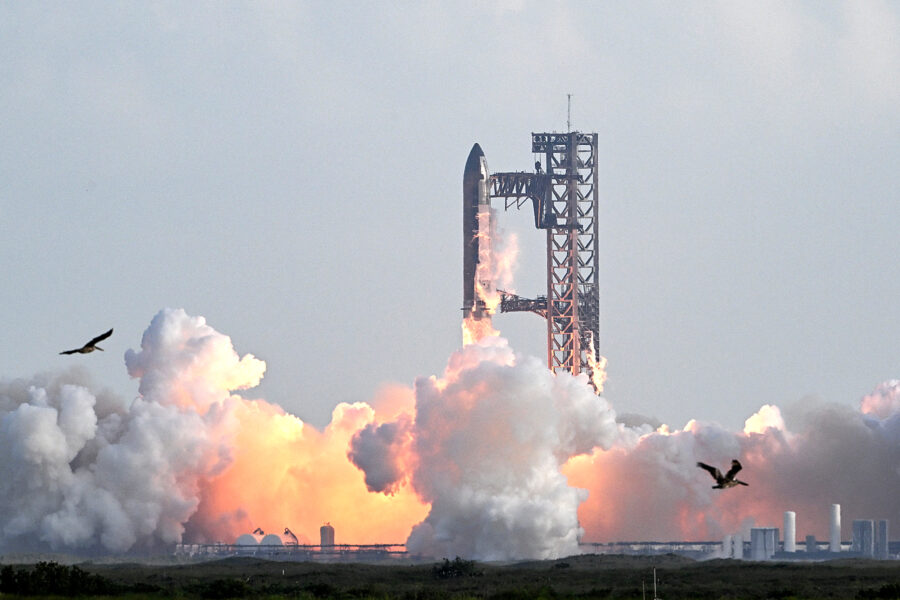Prominent British researchers at the heart of the hacked email scandal shot down accusations of illegally withholding scientific information charting the planet’s temperature, telling a parliamentary hearing that certain governments had prohibited them from publishing all the raw data.
Phil Jones (photo), head scientist of the premier Climatic Research Unit (CRU) at the University of East Anglia, acknowledged that he refused requests for the institute’s raw climate data, but only because of confidentiality agreements with national weather stations supplying the figures.
“No breach of the law has been established,” said Edward Acton, vice chancellor of university.
Late last year, thousands of emails and documents, some dating back 13 years, were stolen from a University of East Anglia server and placed on the Internet.
Critics say the correspondence reveals, among other things, attempts by scientists to fend off freedom of information (FOI) requests for primary temperature data and computer codes, leading to accusations that researchers violated the UK’s FOI Act.
Since the scandal broke, the CRU has asked meteorological stations in 150 countries for approval to release their temperature data. So far, 59 have replied, said Jones, with 52 agreeing to public dissemination.
According to Jones, whose emails have been particularly derided, 80 percent of the raw data CRU has used is now available online. He also said that almost all of the figures in question have long been accessible through two U.S. science agencies, the National Oceanic and Atmospheric Administration and NASA.
Acton said the university is “longing” to publish all of the primary data it has used on the CRU web site. But “seven countries have said ‘no,'” he said, and “half the countries haven’t yet answered.”
Canada, Poland and Sweden are among those nations that have declined. Russia, Acton added, is “very hesitant.”
The three-hour hearing was held Monday by the UK parliamentary science and technology select committee, which has launched an inquiry into the matter.
Julia Slingo, chief scientist of the Met Office, the UK’s national meteorological service, confirmed the claims by Jones and Acton.
“Observations that went into the crude [temperature] data set are fundamentally owned by the national met services,” Slingo said. “Some governments see this data as having commercial value” and aren’t willing to give it up.
‘Awful Emails’
Jones, who has been accused of hiding emails and data from climate skeptics, conceded to the committee that he wrote “some awful emails.”
“I fully admit that,” he said.
John Beddington, the government’s chief scientific adviser, said he thinks “some of the wording [of the emails] is unfortunate, and there is cause for concern.”
Benny Peiser, the director of the Global Warming Policy Foundation, said the scandal is “tarnishing the image of British science around the world.”
Analysts agree that global warming skeptics have used the controversy to try to cast doubt on widely accepted assumptions about human-caused climate change.
As the reverberations continue, scientists fear the scandal could influence public opinion about the state of the science.
“The media has certainly portrayed the UEA issue as a crisis, so to the public it has been portrayed as a crisis,” said Bob Watson, chief scientist for the UK Department for Environment, Food and Rural Affairs and former head of the UN Intergovernmental Panel on Climate Change (IPCC).
Climate Science Untarnished
The parliamentary hearing was supposedly convened to examine the scientific integrity of the CRU methods only, not to challenge the science of global warming. But questions also emerged about the operation and legitimacy of the UN’s top climate science body, the IPCC.
Slingo said the main finding of the IPCC’s 2007 Fourth Assessment Report that the warming of the planet is unequivocal is “definitely the case” and has “not been challenged by any evidence that has emerged since then.”
“We have to remember,” she said, “that the IPCC, through its process, puts a peer review in place on an area of science that is much greater than any other science.”
Watson said the pilfered emails have resulted in “absolutely no adverse effects on any of the conclusions of the IPCC.”
But the saga is far from over.
An independent inquiry commissioned by the university and headed by Sir Muir Russell, vice chancellor of Glasgow University, has been set up to examine the behavior and procedures of CRU scientists.
Some scientists seem to think the conclusions could finally exonerate Jones and the institute. Watson called the panel “absolutely critical to the whole situation.”
Russell, speaking to the panel, said the report would be released at an undetermined date this spring.
The committee has ruled out a reappraisal of whether climate change is human caused. The University of East Anglia, however, has said it will take up that task. Acton told the committee that he will announce the chair of a new panel designed to reassess the CRU science behind man-made global warming, though he said the findings are “so overly endorsed” and he does not see “any flaws.”
See also:
Opponents of Climate Regulations Start Targeting Scientists
Climate Scientists Defend IPCC Peer Review as Most Rigorous in History
About This Story
Perhaps you noticed: This story, like all the news we publish, is free to read. That’s because Inside Climate News is a 501c3 nonprofit organization. We do not charge a subscription fee, lock our news behind a paywall, or clutter our website with ads. We make our news on climate and the environment freely available to you and anyone who wants it.
That’s not all. We also share our news for free with scores of other media organizations around the country. Many of them can’t afford to do environmental journalism of their own. We’ve built bureaus from coast to coast to report local stories, collaborate with local newsrooms and co-publish articles so that this vital work is shared as widely as possible.
Two of us launched ICN in 2007. Six years later we earned a Pulitzer Prize for National Reporting, and now we run the oldest and largest dedicated climate newsroom in the nation. We tell the story in all its complexity. We hold polluters accountable. We expose environmental injustice. We debunk misinformation. We scrutinize solutions and inspire action.
Donations from readers like you fund every aspect of what we do. If you don’t already, will you support our ongoing work, our reporting on the biggest crisis facing our planet, and help us reach even more readers in more places?
Please take a moment to make a tax-deductible donation. Every one of them makes a difference.
Thank you,











